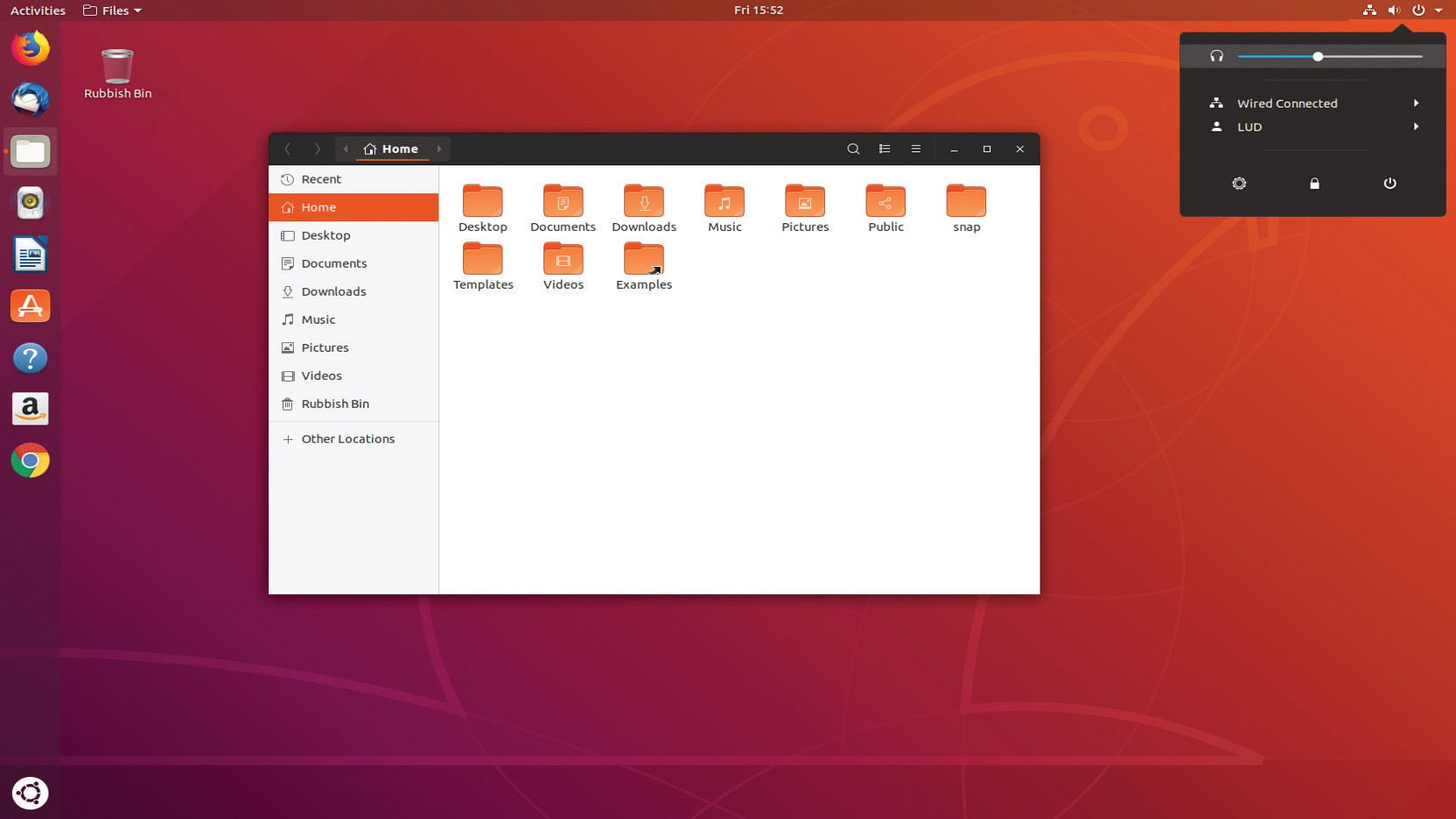Canonical on Ubuntu 'Bionic Beaver' 18.04 LTS and its controversial changes
With ongoing plans to take Canonical to IPO, we spoke to the company behind Ubuntu about the latest release
Apps and Themes
In terms of the features for 18.04, and I guess 17.10, how much of an impact has the Ubuntu Desktop Survey that you did had on your road map?
WC: Well, yes, pretty good. We’ve ticked off a lot of those. The interesting thing from my view was the kind of approval about what it is that we’re doing. If you can remember the results and the graphs that went out, by and large the choices that people were making about their preferred desktop environment, their preferred default applications, their preferred browsers, and that kind of thing, was entirely in line with what it is that we’re already doing.
So it was kind of vindication for the technical choices that we’ve made over the years, to say that, “Yes, this is what people are looking for. This is the sort of thing that people want.” There was one outlier there, I think, which was VLC, which we are not shipping by default at the moment. That’s available as a snap package. So it’s dead easy for people to go and grab that if they want to install it.
So have they got htop?
WC: Yeah, I think they have now. David, you’ll know better than me. Did that make it in?
David Britton: Yeah. Actually, we have news there. Htop will be on the default server install. So if you have a server anywhere, you can run htop. I know that’s a huge request in the community!
We gather one person requested eMacs for everything.
Are you a pro? Subscribe to our newsletter
Sign up to the TechRadar Pro newsletter to get all the top news, opinion, features and guidance your business needs to succeed!
DB: That, unfortunately, won’t be in the default server. [laughs]
Apart from VLC, were there any other surprising results that made you step back and reconsider or assess a different route for both Desktop and Server editions?
WC: Yeah. There was one thing that stood out for me, which I was very surprised by, and that was how many people are using LibreOffice still. I use Google Docs for Work, and I tend to use it if I’m writing a document from home or managing finances and that kind of thing at home. So I kind of assumed that everyone else did as well. And people that I speak to tend to use Google Docs.
But going out to the community and asking for their feedback, they made it very, very clear that people still rely on, and use heavily, LibreOffice and all of its components. So that was something I thought, “Maybe we don’t need LibreOffice by default.” But that was made very clear that we do.

That is quite interesting. In our workplace, we have a combination of the two. We have LibreOffice and the company also uses Google Docs as well. It’s interesting, a lot of people are using SaaS (Software as a Service) products now.
WC: Yeah, and I think that that trend of more and more people using software as a service is only going to increase. I do wonder if in the future, there’ll be some catastrophe, like AWS will go down, and suddenly everyone will wish their servers were back on premises again. But I think that Amazon have probably got a handle on keeping things running.
But what it does mean is that a lot of the computer power that goes into your day-to-day computing is being moved into the cloud. So perhaps [...] you could be looking at running thin clients more and more, that literally just run a browser.
An Ubuntu Desktop is really well-suited to that job. Dell has recently bought Wyse, the thin client, and those guys are running Ubuntu on there. The most important thing on your SaaS end-point is the browser. We’ve got Chromium and Firefox and Chrome and Brave. […] with the exception of Internet Explorer, we’ve got all of the major browsers there, bang up to date.
Mozilla have recently repackaged Firefox as a snap now, so you can get the definitive version of Firefox direct from Mozilla. That’s what Mozilla want, really. They don’t want lots of different, slightly tweaked versions of Firefox out there. They want you to know that when you download and install Firefox, you’re getting the one that they want.
So again, snap packages suit those guys, because they can publish it themselves. They can push it out to their own users directly. And part of the flexibility of snaps is the ability to have tracks and channels. So you can have a stable track, which the LTS users would sit on, and they would continue to have the supportive browser.
And for those guys that want something a bit more cutting edge, or if you’re a web developer and you want to try the new versions, that’s available as well. It’s dead-easy to just switch between those two versions. So for a developer’s perspective, just for trying out new versions of software before they’re released, snaps make that very easy.
Going on to talk about aesthetics a little, I wondered how the new Ubuntu community theme (Communitheme) was progressing?
WC: It’s going well, yeah. So it’s not quite good enough for 18.04. There’s still quite a few bugs that need fixing, specifically around GTK+ 2 applications. GTK+ 3, I’d say, is pretty much done now, theme wise. GTK+ 2 applications – there’s only a few of them, but there are some bugs that need fixing there.
But yes, it’s looking really good. It looks fresh, it looks very professional. […] So we’ll be looking to ship that in 18.10. But in the meantime, we’re also working on getting it packaged up as a snap, as you wouldn’t be surprised to hear, for 18.04 users to install. So if you want to try the new theme, you can snap install it, log into a new session which will give you that theme. […] and that snap will be refreshed pretty much every single night. [...] In the next cycle, he 18.10 cycle, we should see it on there by default, which is very exciting.
Chris Thornett is the Technology Content Manager at onebite, editor, writer and freelance tech journalist covering Linux and open source. Former editor of Linux User and Developer magazine.
